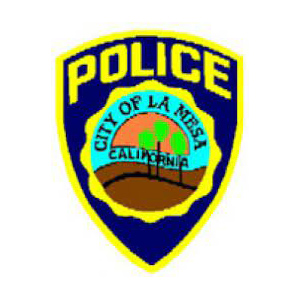2021
Finalist | Officer Wellness
La Mesa (CA) Police Department
State: CA

Resources
La Mesa (CA) Police Department | 2021 Officer Wellness NominationLa Mesa (CA) Police Department | Instruction on Wellness
La Mesa (CA) Police Department | V.E.S.T. Newsletter Sample
La Mesa (CA) Police Department | P.T.S.D. Pamphlet
La Mesa (CA) Police Department | Field Training Manual OSW Section
Overview
The La Mesa Police Department is a municipal police agency authorized to employ 69 sworn police officers and 31 professional civilians, as well as a large contingent of retired senior volunteers. The Department serves a community of approximately 60,000 people in an area of 9 square miles. The Department answers over 100,000 calls for service each year with the Patrol Division, Investigations Unit, Special Investigations Unit, Traffic Unit, School Resource Unit, and Crime Prevention / Community Resource Unit.
The Evolution of a Comprehensive Wellness Program
As early as 1997, the La Mesa Police Department recognized the impact of critical incident stress on those who serve in the law enforcement profession. Long before Peer Support teams were culturally accepted, the La Mesa Police Department’s Peer Support Team began conducting critical incident stress debriefings to assist our team members with resolving critical incident stress following traumatic incidents. Over the years, our Peer Support Team has evolved and become just one component of a highly effective and diverse La Mesa Police Department Wellness Program. Influenced by a greater understanding of trauma and a steadfast dedication to our employees, our Wellness Program has successfully indoctrinated wellness initiatives and practices throughout all operational facets of our agency.
The greatest evolution of our program occurred in 2009, after then-Chief Ed Aceves (Session 236) and Captain Dan Willis (Session 241) attended the FBI National Academy. As part of their curriculum, they attended a course called “Spirituality in Law Enforcement.” Chief Aceves didn’t sign up for the course when selecting his courses, he was assigned to it and tried to get out of it as it was not something that interested him. He went to speak with the instructor, FBI Special Agent and Doctor Sam Feemster, seeking to get out of the class. Dr. Feemster challenged him: “Come to the first class, and if you don’t like it, I will sign you out of the course.” So the Chief went to the first class and was stymied when Dr. Feemster presented it like this: every year in the United States an estimated 125 to 150 police officers will commit suicide, but we are doing nothing about it. If a 737 airliner crashed every year in the United States, killing the 125 to 150 people on board, the FAA would ground every 737 until the problem was solved.
Chief Aceves stayed in the class. He also brought back with him a dedication to improving officer wellness: taking care of the whole person and giving our employees the training, tools, and services needed to survive a career in law enforcement; from recruitment to retirement, healthy, whole, happy, and intact to LIVE your life. Captain Willis then went to the FBI National Academy, attended Dr. Feemster’s class, and came back with a passion for creating something more for our people here.
Captain Willis started thinking and testing the waters at LMPD to see what (if anything) might come of this new approach to wellness. The challenge was, of course, in using the word “spirituality” when discussing wellness. For most people, the use of the word “spirituality” tended to evoke thoughts of organized religion. We struggled to come up with another way to explain it: that unique inner sense of self and wellness that speaks to the soul rather than the mind. We were referring to the WHOLE person and the unique inner being that makes a person a human being and not just a badge or a uniform. Enter the concept of “BeSTOW,” which stands for “Beyond Survival Towards Officer Wellness”. This program was the creation of Dr. Feemster and formed the central basis for his course.



